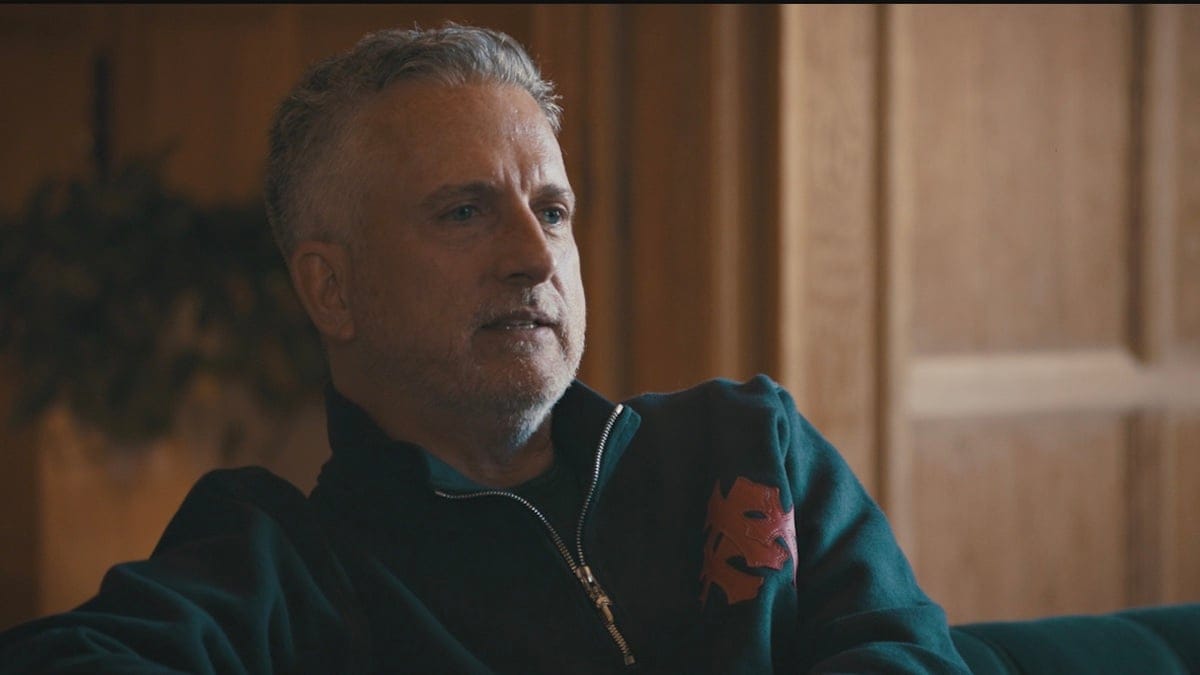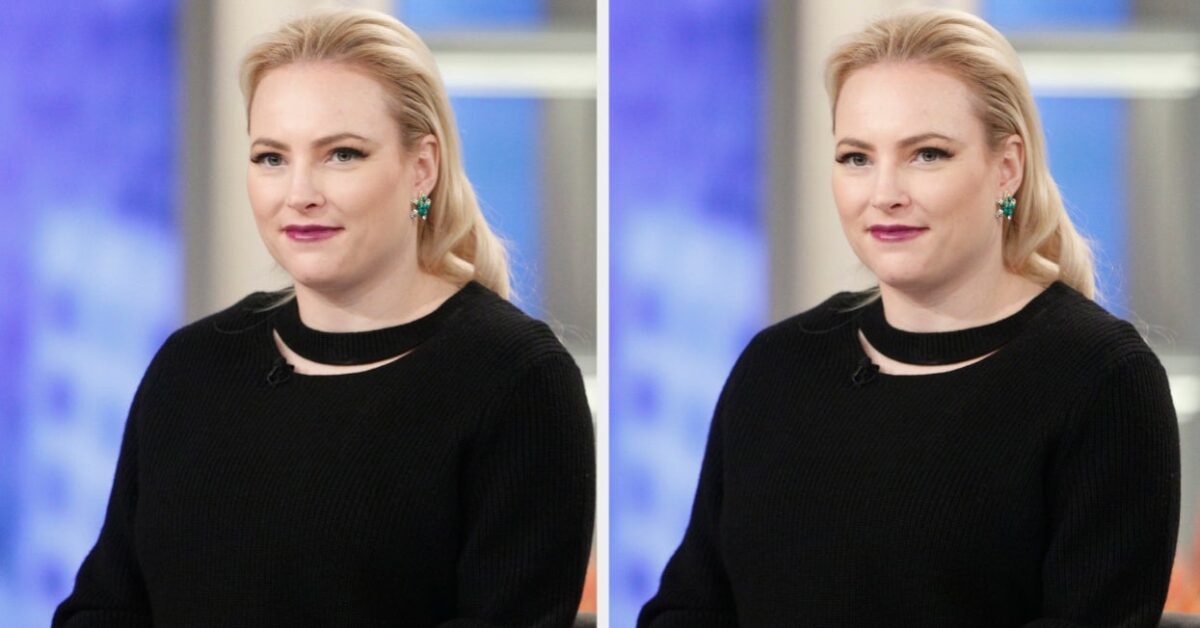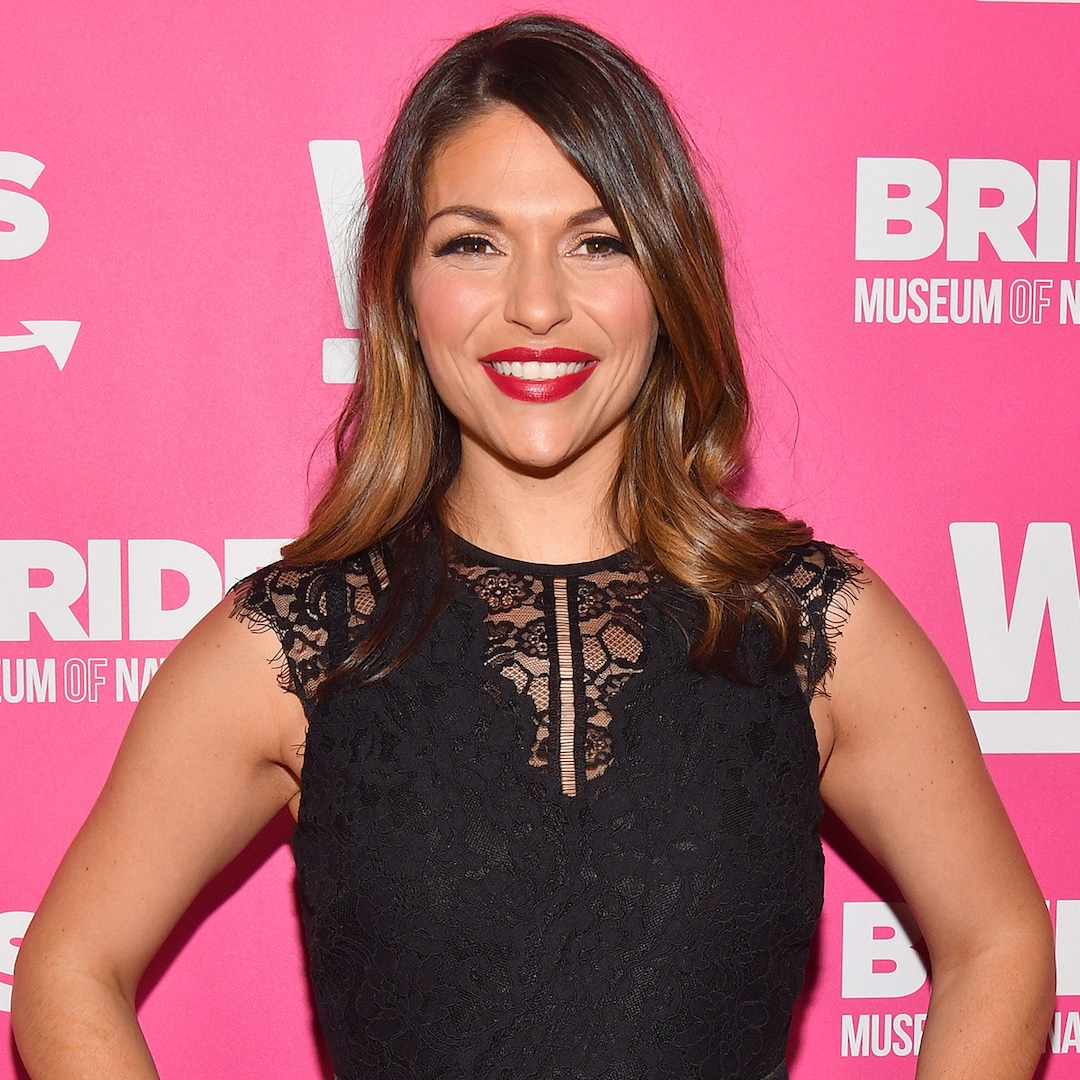
Sung Kang Details the Reality of Being an Actor Directing Your First Film
Aug 15, 2023
The Big Picture
Sung Kang discusses his experience making his feature directorial debut with Shaky Shivers. The movie is a wildly charming supernatural horror romp inspired by creature classics like An American Werewolf in London. Kang walks us through the reality of being an actor eager to get their first feature off the ground and the learning curve one experiences during the production and post-production process.
Sung Kang is soaring as an actor. Not only did he recently join the Star Wars franchise via Obi-Wan Kenobi, but he’s also a fan-favorite in one of the biggest film series of all time, Fast and Furious. Clearly Kang’s found great success in the industry as an actor, but he’s never quite been able to shake something he noticed back when he was first starting his career; there was a lack of opportunity.
Fast and Furious’ Han is all the proof you need that Kang knows how to take a supporting character and make him feel whole while wedging his way into fans’ hearts. But, Kang wanted more and he ultimately came to the conclusion that in order to get more, he’ll have to create his own material. That brings us to his feature directorial debut, Shaky Shivers.
The movie is a hugely charming supernatural-horror romp with Are You Afraid of the Dark vibes that’s also oozing with reverence for iconic creature features like An American Werewolf in London. The movie stars Brooke Markham and VyVy Nguyen as best friends Lucy and Karen. When the movie opens, Lucy thinks she’s been bitten by a werewolf and insists Karen be there to stop her just in case she truly does turn. Little do they know, that’s only the beginning of a delightfully goofy and bloody adventure.
In celebration of Shaky Shivers’ one-night-only theatrical release via Fathom Events on September 21st, I got the chance to chat with Kang about making his directing dreams a reality. Hear all about the learning curve he needed to experience while working on the film, how they went about pulling off their werewolf transformation, which directors heavily influenced his own approach to the work, and more in the video interview above or in transcript form below.
Image via Cineverse
PERRI NEMIROFF: Going back to the very beginning of your directing ambitions, do you remember the day or maybe even the specific thing that happened that first made you think to yourself, “I have to direct a feature film?”
SUNG KANG: I think it started probably within the first five years I started acting professionally. There was this lack of opportunities for me as an actor. I always felt like, you know, I think there’s more to it than playing fifth to tenth to fifteenth supporting character that’s kind of one-dimensional, or mostly one-dimensional. And I always asked myself, “How am I gonna quench this thirst to do something more meaningful or have more contribution to a production other than playing a small co-starring role?” And then I realized, it’s that you have to create your own material and you have to be behind the camera and you have to create opportunities for yourself and other people that have the same obstacles.
I knew early on if I did not take control of this problem myself then I probably would – I use this term that the light behind my artistic light would start dimming, and I would become some jaded actor, and bitter. So, yeah, very early on I knew that you have to control your own destiny, so writing and directing is the only way you can do that.
The light behind your artistic light; I’m not gonna forget that visual.
So you decide you want to direct a film; does being very well known for your acting help when you want to get the green light on your first feature, or is it the kind of situation where it requires more convincing where you have to tell the powers that be, “No, I am very capable of doing this as well?”
KANG: It definitely opens the door. Definitely people will entertain the idea of sitting down with you and talking with you because if you’re known for particular work or known as being part of a big franchise like Fast people will give you the benefit of doubt, if you will, and sit down with you. But still, you have to campaign for yourself. Just because you’ve been in a bunch of stuff doesn’t mean that you have a hold of the craft of directing. As an actor, you’re usually there for a little bit of pre-production and then you’re part of production, and then you leave, right? So, post-production was my weak side, and that was something that I had to learn on my own.
And I think when you sit down with somebody, especially when it comes down to investing money into you, it is show business. There’s a business behind this. People have to feel confident that you’re gonna be able to execute, you’re gonna be able to lead this army and finish the product. So, it’s not easy. If it was easy, everybody would be directing as well. So I think once you have the confidence in why you’re directing and you have an understanding of the overall journey it takes to make a film as a director – and I think people feel it, you know? I think the smart ones sit down with you and they go, “This person knows what they’re talking about.” But it took a while. It took a while to get the financing even though our budget is minimal, nothing is free in life, right? So for people to fork over that kind of money is very challenging.
Image via Cineverse
I have a million follow-up questions, but before I get too far ahead, I’m just curious, in general, are you a big horror fan?
KANG: During my childhood, I wouldn’t say I was into the slasher films, but I definitely appreciated and loved films like An American Werewolf in London, Gremlins, even Freddy Krueger. Jason was one of the characters that I grew up with. They’re part of my video store filmography, right? As a kid, on Friday and Saturday nights you get together with your friends and you watch these classic horror films. So they were definitely part of my life and part of why I appreciated movies. Especially the practical elements of the monsters and the prosthetics and the artwork that it took to create a lot of these visually compelling werewolves and monsters of that era.
I definitely see a lot of those influences in your movie here.
Just for fun because I love fan-casting my favorite actors in my favorite horror franchises, if you could pick one iconic horror franchise to join, which one would you pick and why?
KANG: I’d love to play Freddy Krueger in A Nightmare on Elm Street. That character was just so fun. Having experience with prosthetic makeup and sitting in the chair for four hours like I did in the Obi-Wan series in Star Wars, that’s the only part that I kind of wonder if I have the stamina to sit in the makeup chair for months. But that character was so fun! That sweater, to this day, is so iconic, and the knife fingers. That’d be on the bucket list for sure.
That’s now on my bucket list. I need to see you play Freddy Krueger!
You just touched on this a little bit, in particular with post-production, but even with all your experience acting, and producing as well, was there any particular thing about what it takes to direct a feature film that you didn’t realize was part of that job?
KANG: The concept and the mastery of leadership was something that I think I just had a theory of what it took to lead a creative army to a finished project. And it really was, also, I think, channeling and understanding yourself, right? I grew a lot during that process because as an actor you are responsible for yourself and your role, right? But as a director, you are, in a way, a parent, and I lacked that experience and I realized that I’m flawed in so many ways, and selfish in so many ways and stubborn in so many ways, and to be able to get the best out of a creative crew and cast, you have to know yourself and find peace in who you are and accept your flaws. I think once you do that, people will see that there is humility in the way you approach leadership.
I do feel like there was a lot of self-exploration that I didn’t know that I had to go through. Like every night, you’re the last one to go to sleep. You can choose to be the person that is gonna start preparing for the next day’s outing. I would reflect and go, I probably approached that day incorrectly and I could have been more supportive, or could have been a bit more engaged and more empathetic. So daily you’re falling on your face and you have to lift yourself up, right? There’s a lot of self-reflection I didn’t think I had to go through.
Image via Cineverse
With all of that in mind, is there anything about your experience directing Shaky Shivers that you have found influencing your own approach to your work as an actor now, where viewing the craft of acting from a different vantage point or having a better understanding of what it takes to be a director is changing the way you approach your work in that particular field?
KANG: As an actor now I know what the director is going through. He has a million decisions, and I’m more empathetic. I try to be that member of the family that is thinking ahead for the director. I’m trying to be like three steps ahead. And also being empathetic to what that person is going through, especially if they’re having a tough day. Before it would be about me and I’m like, “Why is that person so upset?” Or, “Why are they behaving that way?” It’s definitely made me less selfish, if you will. I think that’s a good thing.
There’s a lot of times as an actor you just have to worry about yourself, right? It’s not just about you, it’s about the whole, the project as a whole. And I think when you have a member of the team that is also watching out for you, is there thinking a few steps ahead for you, it just helps. So it’s calmed me down a lot. I think being a director just matures you a lot, especially at my age, you know? It’s definitely changed my perspective as an actor.
I’ve always been a very big believer that even if someone just wants to focus on one particular craft, it’s still always beneficial to have at least a little bit of an understanding of what everyone on a set has to do, so having those kinds of experiences, I think, makes all the difference.
KANG: Agreed.
In terms of directing actors, what’s something you wish that more directors had done for you on set in the past that you strove to do for your cast to make sure that they had it on this film?
KANG: I think because as an actor, I always hoped that I had a director or a leader that was rooting for you. Sometimes you felt like you were kind of alone and kind of hung to dry, if you will. I wished sometimes the director would overcommunicate with me and just give me validation, especially when I was younger. These days I’m not looking for that or I don’t need it as much, but when you’re a young person you do need validation. And it could just be in a physical gesture or a look or a wink. I’m extra sensitive to the actor’s state of mind on set, and I can see how there’s such a thin line where that confidence can break. You have to be the ultimate cheerleader. And some actors don’t need that, but then, I think actors tend to be insecure animals to begin with so I just try to be the ultimate cheerleader for them.
Those vibes and that support are of the utmost importance on sets.
Image via Cineverse
How about just in terms of the techniques you use and the way you operate? Is there any particular director you’ve worked with in the past, especially as you were leading up to directing Shaky Shivers, that you found yourself observing what they were doing and maybe applying their techniques to your own approach to the work?
KANG: I had the opportunity to work with Walter Hill, an iconoclast in his own right who did 48 Hrs. and worked with [Sam] Peckinpah, and I got to work with him on this Sylvester Stallone film called Bullet to the Head. And then, eight years later, I got to work with Robert Rodriguez. And the reason I bring these two directors up is that they share everything. There’s no secrets to their craft. There’s no voodoo. They’ll show you all of their notes and their sketches and their storyboards and their notes. They just have this passion for filmmaking. Also, they’re not selfish with their knowledge. They ask the crew and the cast to know the script and know what’s in their head.
I remember I got to hang out with Robert Rodriguez at his home. He invited the cast over, and he taught me something about service is that when the leader is willing to serve you and he’s there to fan those creative juices, if you will – I went over to his house and he made us pizza. He didn’t just make us pizza, he explained why he uses the certain type of flour and the type of water and his clay oven and the honey that he uses for the pizza and the type of cheese. And then he would ask us to go into his little drawing room and asked us if we would gift him with something, a picture or a poem or something, so he could remember our artistic contribution. I remember this evening, and I’m like, “Wow, this is such a lovely evening,” you know? And then I would ask him questions about his previous movies. I’d go, “How did you do that? Was that an expensive shot? What was the budget for that?” And he would literally pull out his computer, and he goes, “Let me show you some,” and he would break the scenes down and explain how you can do something with minimal money, and explain to me the importance of an actor that is willing to take risks and try, and just the importance of a cast and crew that’s willing to dance with you, right? So, these lessons.
And then Walter Hill explaining to me that even though he had a prolific career, as he started getting older, it was interesting, he said to me, “Kid, when I was a younger person, I wouldn’t understand what you go through as an actor because you talk about lack of opportunities as a minority.” And he goes, “I understand that now as an older person because at my age there’s this ageism in Hollywood, and there are little opportunities for me.” And I was like, “Wow, the cruelty of Hollywood,” you know? Everyone has their time. An average director maybe does six to ten movies in their lifetime, so you realize that things are finite, and enjoy it. I think that’s why Walter, on set, he was like a kid in a candy store. That was his happy place.
I think all these wonderful lessons have given me a foundation that is based in reality, and also based in this ethos of contribution, like, “How do I give back?” And it’s like, information is free, right? So you can keep sharing and keep sharing, and that’s what I tried to do is that anyone with a question I’ll give you all the answers. That’s how you, I think, contribute to better films in the future because you have these wonderful disciples, if you will, of this type of ethos. Because these folks did that to me, or had given me that, I give that back. That is something that I try to emulate as I get older, too.
What a beautiful answer. It’s not quite the same thing, but that’s why I love interviewing artists about their work so much because getting some of that behind-the-scenes information out there, you never know who that could inspire or how it can enhance someone else’s work, and the thought of that happening, even if it’s just on the smallest scale, thrills me and fills my heart.
KANG: Thank you.
Image via Cineverse
To get into some specifics here, this is a very ambitious first feature. Of all of the creature design and stunt work required for the film, going into production, which thing did you think was going to be the most challenging to pull off, and then ultimately, was it indeed the most challenging or did something else catch you by surprise?
KANG: There’s a sequence in the film that’s an homage to the American Werewolf in London, the werewolf transformation, that the character Lucy has. I knew it was gonna be challenging because time is our enemy, money is our enemy, but because we were blessed with Gabriel Bartalos’ experience and his passion for the practical effects, and he was also a Rick Baker disciple. Rick Baker actually worked on American Werewolf in London, so he knew exactly what I wanted, or what I was going for, a tip of the hat to that werewolf transformation in American Werewolf in London.
We were fortunate because we had Brooke Markham who’s just a fantastic actress. If an actress couldn’t pull that performance off, it would be borderline really hokey. Actually, it would be hokey. And also, too, you know, we just didn’t have time. I think the whole sequence, I mean, it should have taken a few days minimum, like at least two or three days minimum, but we had like two hours, right? It was nerve-wracking because I was like, “This could be really dumb and not really work.” Even when I was shooting, I was like, “I don’t think I have enough coverage.” I felt like Gabe didn’t have enough time to really be able to work on the prosthetics on the day because I think he had like an hour and a half of prep because that sequence goes in order. So you can’t just put the prosthetics on it. It starts with the hand, and you have to put a little bit on the face, and then we focus on the back. There’s so many elements, but again, without Gabe, we wouldn’t have been able to do it.
And then it’s also the magic of editing, too, and sound design, right? So it turned out okay. I can’t say that I’m completely happy with it, but that’s also art. I don’t think a director is ever really satisfied with their work, right? So I wish we had more of everything, but I do applaud and am so grateful to Brooke and Gabe for making that work out.
For what it’s worth, from my perspective, I think you made the most of the time and the resources you had, and it perfectly aligns with the tone of the film, too. I’ve covered many movies out there that have werewolf transformations, or other paranormal entities for that matter, and the movie essentially hinges on that working. I was wildly impressed by what you were all able to pull off here. I understand always reaching for more as a director, but you should be very proud of what you did in that particular sequence.
KANG: Well, thank you so much, Perri.
I wanted to end with a question about the ongoing strikes. We are lucky enough to get to talk to you because we are talking about your directorial debut, but there is a lot happening in this industry that we like to shine a spotlight on whenever possible to make sure the message is continuing to get out there as these situations progress. I know there’s probably many answers to this particular question, but what is something that you didn’t have in the past as an actor that these negotiations are pushing for that you think could make for a better working experience for you in the future? Something that you are eager to have and move forward with?
KANG: That’s a great question, Perri. I don’t even know how to answer that. The strike is really representing the change in what we did have in the past. For instance, residuals. Our union has been so good at protecting our residuals so we could be able to qualify for health insurance, et cetera. I know that that’s one of the things that our union is fighting for because with streaming, a check that yearly would be $1,400 is now around $40 because streaming just doesn’t pay residuals.
When my wife was sick and she had to get medical care, you had to meet that, I think it’s around like $30,000 a year to qualify for SAG insurance. The residuals pretty much were able to cover most of that, or fill in the gaps, right? So an actor could do a few guest stars and maybe a small feature, and then the residuals would take care of the rest, but today, it’s almost nothing, right? So that’s something our union is fighting to preserve. I’m not answering your question, but that’s something that I completely agree with because it’s on such a personal level with our residuals. I definitely would not have been able to afford health care and the care that my wife needed when she was sick. So, I know that’s not answering your question, but I feel like that’s something that is very personal to me.
This idea of actors being able to subsidize their income by our work from the past and what the residuals allowed us to be able to have in terms of medical care and stuff, it’s going away. So it’s much, much harder. I wonder with real estate prices in LA and New York how a young actor is able to afford to be able to go to acting class and pay their rent and have a car and then gas money and have healthy food, you know? When I was younger, my rent was like $500 and I could have a little studio apartment, and I could work as a bartender and a delivery guy, and have a few part-time jobs and still make it to auditions. But today, you’re not able to do that. So, residuals are so important.
Catch Shaky Shivers in theaters for one night only on September 21st via Cineverse and Fathom Events.
Publisher: Source link
McCain ‘Heartbroken’ Over Brain Cancer Research Cuts
There is no known cure for glioblastoma, though research has found ways to shrink the tumors and extend patients’ lifespans. McCain died just over a year after his diagnosis in 2017.Last month, the American Cancer Society Cancer Action Network (ACSCAN)…
Apr 5, 2025
Kate Spade Outlet: Sale Styles Over 70% Off, Get $69 Leather Bags
Our writers and editors independently determine what we cover and recommend. When you buy through our links, E! may earn a commission. Learn more. The Best Kate Spade Outlet Deals: Editor's Pick:... Disclaimer: This story is auto-aggregated by a computer program…
Apr 5, 2025
27 Celebrity Parents Who Spoil Their Kids Or Refuse To
27 Celebrity Parents Who Spoil Their Kids Or Refuse To Many parents value providing a better life for their kids than they had growing up. However, when those parents are rich and famous, it can be easy to indulge them.…
Apr 4, 2025
Bachelorette’s DeAnna Pappas Breaks Silence on Her Arrest
Jenn Tran & Devin StraderStatus: Split During the season 21 finale of The Bachelorette, it looked like The Bachelor alum Jenn Tran was finally getting her happy ending with her final pick Devin Strader. But Jenn, 26, revealed on…
Apr 4, 2025











